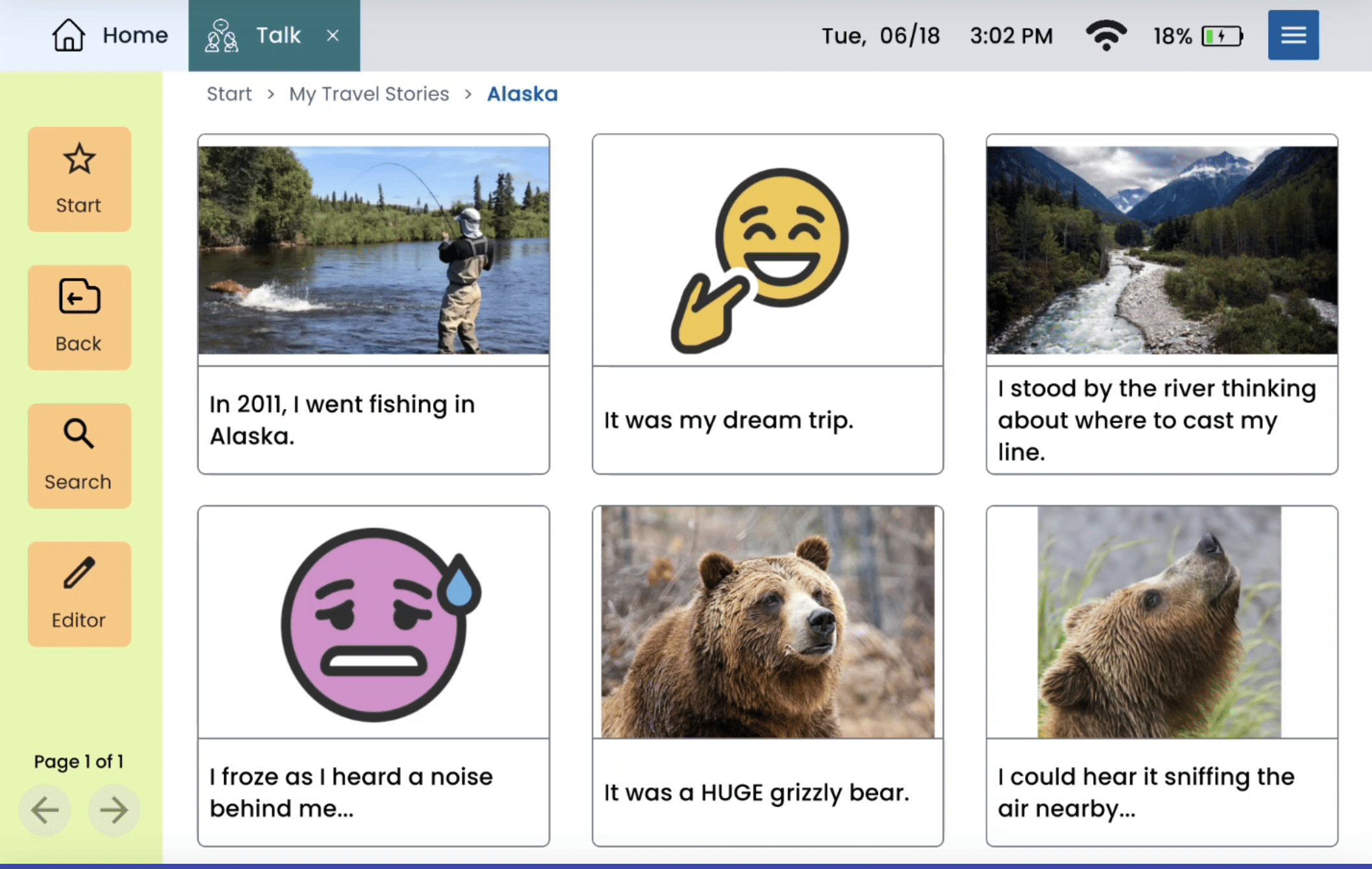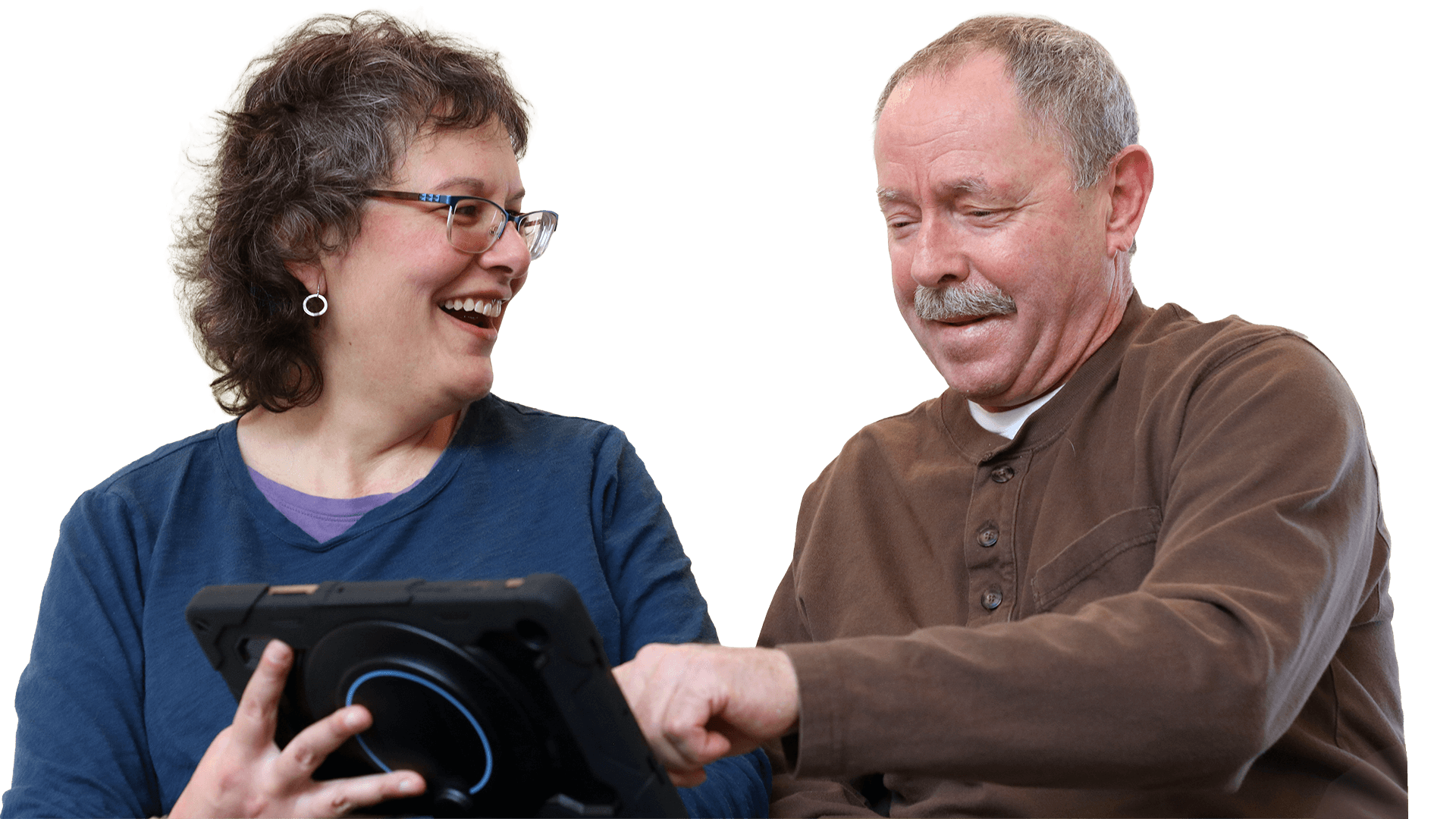Everyday Communication with Aphasia: Meeting People and Breaking the Ice
Published on Nov 18, 2019

Meeting new people also doesn’t follow a completely predictable “script” the way ordering food or checking in to a doctor’s appointment does. However, being prepared with some common questions and answers can be very helpful. Some of the most common things to share and ask when breaking the ice include:
- Introducing yourself
- “Are you from around here?”
- “What do/did you do for a living?”
- “Do you have kids? Grandkids?”
- Comments about the weather, sports, local events and news
If you communicate mostly by speaking, practice asking and answering these questions. If you communicate using low-tech AAC, have some pictures or written responses ready to go. If you communicate using a high-tech AAC device, program in these questions and answers in advance. Role play meeting new people with a family member or your speech-language pathologist.
Here are some additional tips:
- Being prepared with pictures on your phone or AAC device is a great tool. It can take the pressure off, and most people love seeing pictures! Create a photo library with pictures of your family, your hometown, and your hobbies and travels. Along the same line, if you are having trouble understanding what someone is telling you, ask if they can show you a picture. Most people love to share photos!
- Start in a safer environment – try joining an aphasia support group and practice meeting others with aphasia first!
- If you’re attending a party, you can ask the host to tell others that you have aphasia ahead of time if that makes you feel more comfortable. Or, you can specifically ask the host not to mention it – whatever makes you feel more confident.
It’s up to you how much information you share about your communication impairment and health history. Most people find it is helpful to tell new people that they have aphasia. You can let them know that you might need extra time communicating or have trouble understanding language. Although it can be very helpful to tell your new acquaintance that you have aphasia, it’s up to you if you want to share more details. Some people enjoy telling others about their stroke or other medical condition and how it’s impacted their lives. Others are more comfortable keeping that information private, especially in the beginning. What if someone asks you questions that you don’t want to answer? You can simply say, “That’s no fun to talk about – let’s talk about something else. How about those Packers?”
Either way, remember that you have a lot to talk about other than your aphasia. New acquaintances often enjoy finding things in common, whether it’s about your families, where you are from, or hobbies that you enjoy. Be prepared to share stories about the things that excite you!
Although meeting new people is challenging, it can also be fun and rewarding. The more you do it, the more it will start to feel comfortable!
About Contributor
Lingraphica helps people with speech and language impairments improve their communication, speech, and quality of life. Try a Lingraphica AAC device for free.













